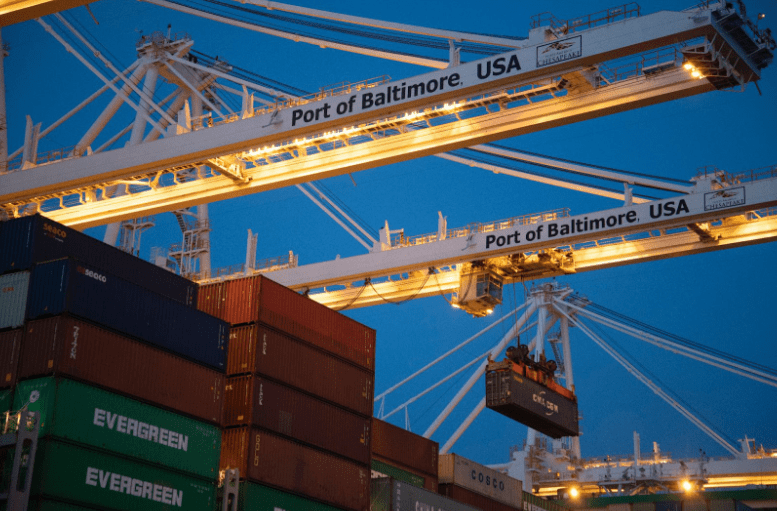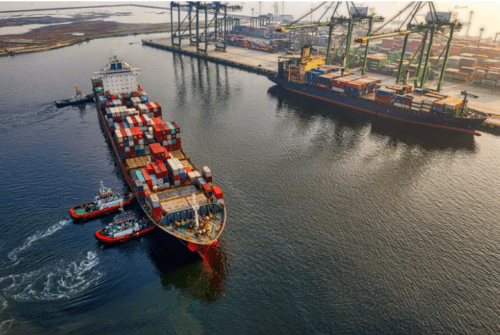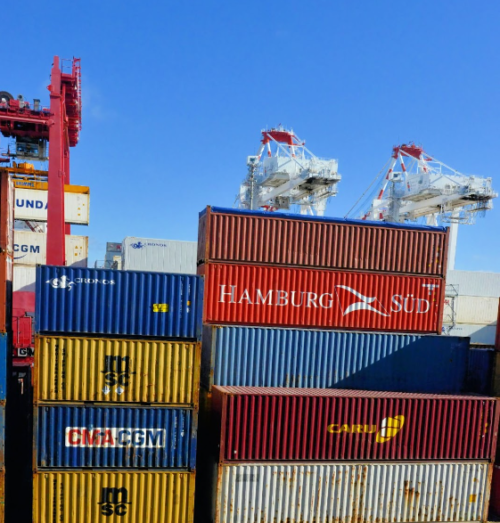Freight Brokers Definition: What They Are and What They Do

If you are a shipper, you know how crucial it is to ensure that your precious cargo moves safely between cities and countries worldwide. There is nothing as stressful as watching your goods get stuck at customs because you don’t have the proper paperwork, or worse, never making it to their destination due to bad weather conditions. To ensure that none of that happens, many shippers turn to freight brokers.
Freight brokers come in different shapes and sizes, from simple roadside merchants to large international corporate entities. However, the purpose behind their creation is similar. They ensure your commodity moves swiftly from one point to another and that your freight arrives safely.
The following article will provide the necessary information to help you understand the definition of a freight broker, who they are, and what they do.
Freight Brokers Definition
Who are freight brokers, and how do they make money? Freight brokers are agents that act as the middleman between the shipper and receiver. As such, they help you find a suitable carrier to transport your freight safely. However, it’s crucial to note that these brokers differ from freight forwarders who store goods on their client’s behalf.
A freight broker can be a corporation or an individual. For example, if you ship bulky goods, you might have to deal with a large corporation. On the other hand, if you ship small and lightweight goods, you may deal with single-person/smaller freight broker companies.
Freight brokers make money through commissions. This commission means they will charge you a fee for their services. The amount of their fee depends on the type of agreement between you and the agent.
There are different types of freight brokerages to keep in mind:
Traditional Freight Brokerage: In this model, the company conducts its business via the phone or email, in person, or through a transportation management system. Depending on the company, some may offer their services to large shippers, while others may focus on smaller ones.
Digital Freight Brokerage: This freight brokerage model uses technology to connect the shipper and carrier to complete the shipping transaction. Most of these brokers, for instance, import-export brokers, offer their services online through an online form or a web-based platform.
Asset-Based Freight Brokerage: In this model, the asset is a truck or a fleet of trucks. The idea is that the broker or the company owns their fleet and rents it out to carriers to use in their operations. One benefit of this model is that it helps to increase profits through shared revenues.
Agent Model Freight Brokerage: The company uses an agent to help them in this model. The agent will be present during the whole transaction.
Responsibilities of a Freight Broker
For freight brokers to conduct their businesses smoothly, they must carry out specific responsibilities concerning their clients. These include:
Negotiating Shipping Rates and Handling Compliance
Freight brokers are in a position to negotiate the price of your goods with the motor carrier that you use. They are in charge of finding a suitable motor carrier and negotiating with them to find what they need to transport your goods between locations.
Additionally, a freight broker is also in charge of making sure that your goods are compliant with applicable laws and regulations. For instance, they will ensure that you have the correct documentation to ship your goods across the country or the world. Other forms of compliance they must handle include any required certificates, such as health and safety certificates.
Vetting Carriers
Freight carriers refer to any party that helps transport goods from one geographical location to another. For example, a trucking company would be considered a carrier for unregulated agricultural truck brokers.

A freight broker–for example, an import-export broker–is responsible for vetting carriers to ensure they are reliable and offer high-quality services. The brokers can conduct this vetting process through research or real-time audits. Some crucial areas that they need to check to include:
- The carrier’s track record.
- Reliability of the carrier’s staff.
- Safety measures and procedures used by the motor carrier during their operations.
- Type of insurance coverage that the carrier has.
- The carrier’s adherence to licensing requirements and compliance with industry standards.
Checking all these things helps the freight broker to determine which provider is best for your specific needs.
Tracking and Managing Shipments
Tracking and managing shipments are two of the most critical aspects of the freight broker’s job.
Freight tracking incorporates the ability to track your shipment from the time that it leaves the point of origin to the time that it finally reaches its destination. The tracking process is usually done while the goods are in transit.

On the other hand, freight management is all about ensuring the safety of your goods so that they reach their destination in the same condition that they left the point of origin.
Ensuring Carriers Get Paid
It is also the freight broker’s responsibility to ensure that the transport carriers–for instance, international carriers–deliver on their promises and ultimately get paid for their services. They must follow up with the carriers to know what was done to ensure a clean, seamless, and hassle-free delivery.
What Skills Does a Freight Broker Need?
A freight broker must have several skills to get the maximum out of their business. Some of the skills they need to have are as follows:
Negotiating Skills
These involve negotiating with the transport carrier on your behalf so that your shipment arrives in the same good condition it left at the point of origin.
Coordinating Skills
This skill involves coordinating with other parties involved in the shipping process to have a smooth, hassle-free, and trouble-free freight shipping experience.
Computer Proficiency
A good freight broker must use a computer-based platform to keep track of your shipment, vet the carrier and manage their financial transactions.
Time Management
A freight broker needs to have good time management skills so that they can handle the responsibilities that come with their business. For instance, they need to ensure that their delivery window is adhered to so that they don’t end up shipping goods before the date scheduled by their clients.
Communication and Interpersonal Skills
A freight broker must use verbal and written communication skills to conduct their business smoothly. For example, an agricultural truck broker can call the shipper or the carrier to explain an issue or resolve a problem that may have arisen.
Knowledge of Different Shipping Methods
A freight broker must know about different shipping methods to help them choose the best method for you and determine which carrier will best suit your shipment. Some standard shipping methods include:
- Intermodal shipping is when goods are transported through various modes of transport. For example, you could transport goods via truck and rail simultaneously.
- Containerization is a way to transport goods by packing them into containers for easy transportation.
- Air freight is a standard shipping method for light and small goods.
Why Do Companies Use Freight Brokers?
There are several reasons why a company may outsource its business to a freight broker. Some of these include:
A Freight Broker Identifies Reliable Carriers
With a freight broker, you can be sure that a reliable carrier will transport your goods. This is because they do an extensive background check by contacting the carriers to ensure they are credible and trustworthy. They also use various resources to determine that the carriers are licensed and compliant with industry standards.
A Freight Broker Saves on Costs
Freight brokers can negotiate discounts for you by securing lower rates from the transport carrier. This negotiation is possible as freight brokers can reach out to a larger pool of carriers and negotiate better rates for you.
Keeps Communications Open
The freight broker acts as a liaison between you and the carrier in a supply chain so you can easily keep communication open. You won’t have to worry about not hearing from the carrier, as you can always contact the broker and get your question or concern answered.
They will also ensure that you remain updated on the timelines involved with your shipment. This way, you will be able to get your goods earlier and in the same condition that they left the point of origin.
Have Access to Critical Technology
A freight broker will have access to technology that will track your shipment from when it leaves the origin to when it reaches its destination. For instance, a broker can use transportation management systems (TMS) to keep track of the shipment’s location, the carrier, and the value of the goods.
Additionally, they can incorporate an electronic data interchange (EDI) platform in their business to easily send and receive data electronically.
In most cases, these technologies may be too expensive for an individual business owner to afford. That is why they will hire a freight broker who can cater to the needs of their cargo shipments.
Conclusion
Now that you understand the definition of a freight broker and how they work, you can see how they can help your business by reducing shipping costs, errors, and time. They can also help you manage your business and supply chain by ensuring a steady cash flow and profitability.
A freight broker must know all the terms used in the entire shipping process. Knowing these will enable them to meet your needs effectively.
